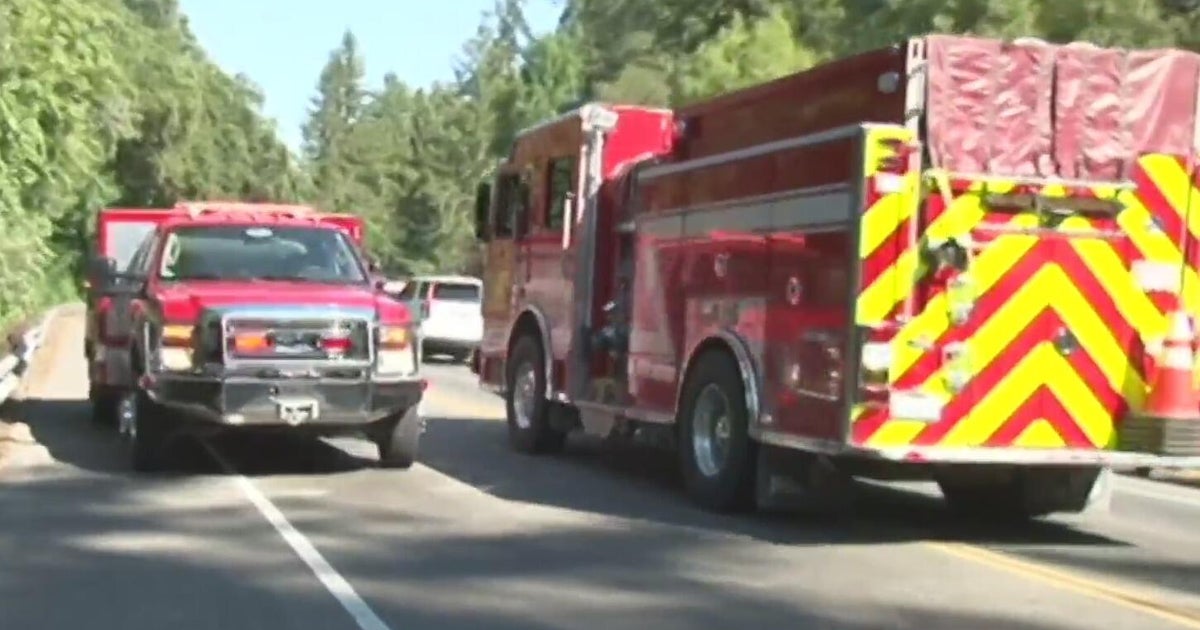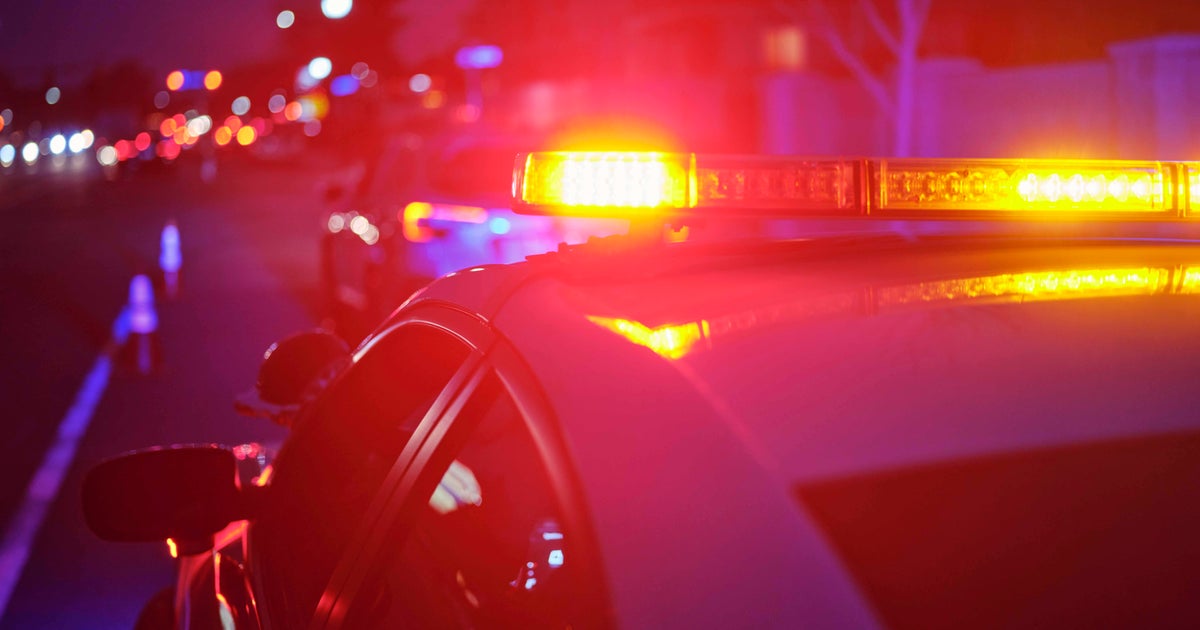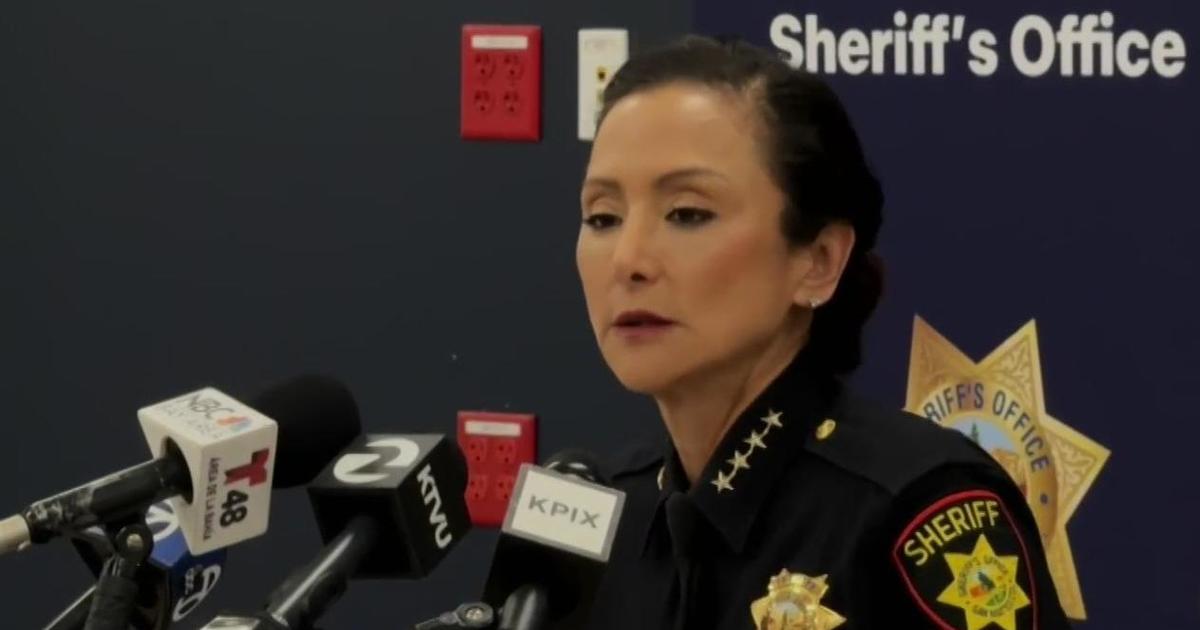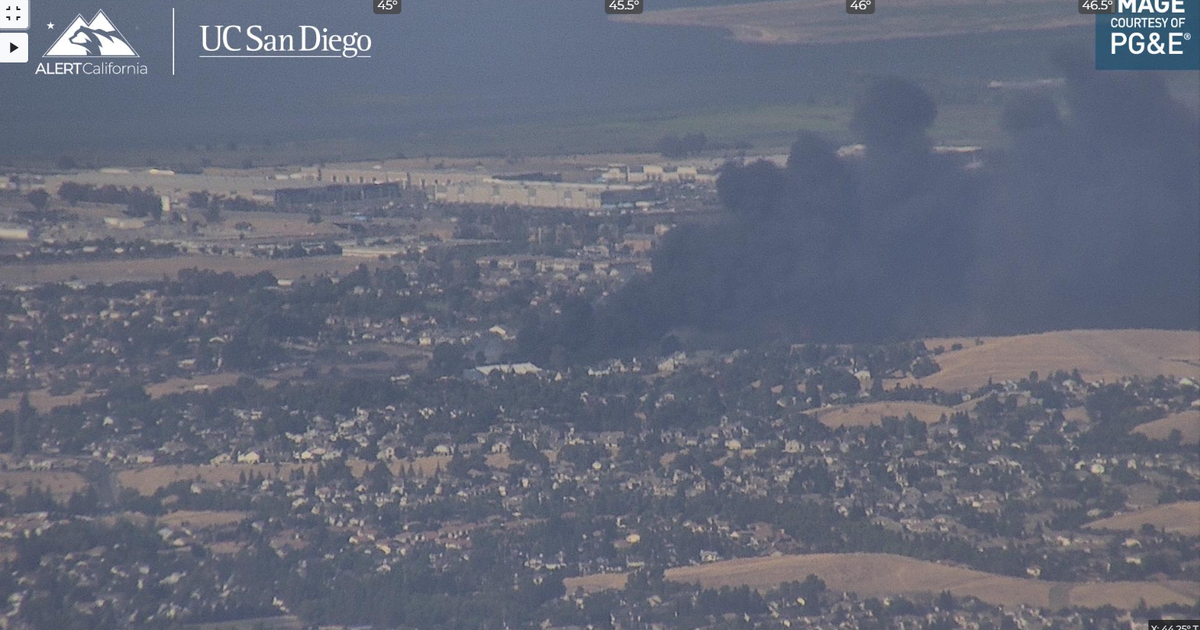California Supreme Court: Access To License Plate Data May Be Possible
SAN FRANCISCO (AP) — It would violate people's privacy to publicly release raw data collected by automated license plate readers that police use to determine whether vehicles are linked to crime, but there may be ways to make the information anonymous that would require it to be disclosed, the California Supreme Court said Thursday.
The ruling came in a lawsuit by the American Civil Liberties Union and Electronic Frontier Foundation that sought a week's worth of license plate data — millions of records — from the Los Angeles County Sheriff's Department and Los Angeles Police Department to "understand and educate the public on the risks to privacy posed" by license plate readers in the area.
A unanimous Supreme Court ordered a lower court to consider methods to make the data anonymous and determine whether any of those efforts would require its release.
Law enforcement agencies nationwide are using license plate readers attached to patrol cars and objects such as traffic signals. The devices indiscriminately capture images of license plates that come into view. The information is passed through databases to instantly check whether the car or driver has been linked to crime.
Officials say the scans are useful in tracking stolen vehicles, missing children and people wanted by police. For instance, authorities chasing a suspect in a fatal shooting at Delta State University in Mississippi in 2015 used an automatic license plate reader to track the man as he traveled across state lines.
Privacy advocates say the systems overwhelmingly capture innocent drivers, recording information about their locations that could be used to track their habits and whereabouts.
The ACLU and Electronic Frontier Foundation said the agencies hold the data for years, allowing officers to use it in future investigations.
The state Supreme Court rejected a lower court's decision that the systems are part of law enforcement investigations though they also scan the plates of people not connected to a crime.
The justices said the scans were "not conducted as part of a targeted inquiry into any particular crime or crimes."
"It is hard to imagine that the Legislature intended for the records-of-investigations exemption to reach the large volume of data that plate scanners and other similar technologies now enable agencies to collect indiscriminately," Associate Justice Ming Chin wrote for the court.
Peter Bibring, a senior staff attorney at the ACLU of Southern California, said that part of the ruling was key.
"The court recognized that technology does make a difference and the exemption for police investigations wasn't intended to encompass the kind of indiscriminate collection of information that license plate readers make possible today," he said.
Bibring said the ACLU wants to see whether law enforcement agencies in Los Angeles are focusing license plate readers on lower-income communities of color or communities of a particular religious persuasion.
A message to the Los Angeles city attorney was not immediately returned. The LA county counsel's office didn't immediately have comment.
The court, however, said the raw data would fall into a catchall exemption under the state's Public Records Act that allows agencies not to disclose records when the public interest in not releasing them clearly outweighs the interest in disclosing them. But the justices strongly signaled there were ways to redact the data to avoid that concern and sent the case back to a lower court.
Bibring said he was confident the lower court would be able to release the information in some form "that sheds light on how police actually use license plate readers and the privacy impacts of this surveillance program."
© Copyright 2017 The Associated Press. All Rights Reserved. This material may not be published, broadcast, rewritten or redistributed.



